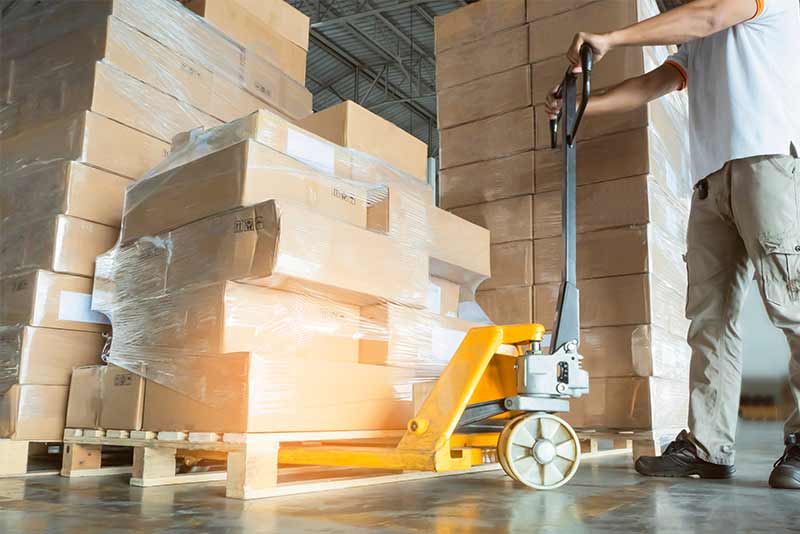China Impacts Price of Recyclable Cardboard
For decades, China has happily accepted waste from around the globe, making it the world’s largest market for recycled cardboard and plastics. The Eastern manufacturing giant has both the technology and manpower to recycle relatively
low-quality materials as well as the market for the resulting cardboard and plastics.
Cheap labour and well-established shipping lines to the EU, the US and Japan have made it easy and profitable for China to cope with the deluge of waste imports – 28 million tonnes of cardboard and 7.3 million tonnes of plastics,
annually; up to 70% of the world’s recyclable waste.

In 2017, in an attempt to cope with its own annual 67 million tonnes of domestic waste, the Chinese government announced legislation to reduce the amount of waste imports and increase the quality of any recyclable cardboard and
plastic that is accepted. With UK paper mills at full capacity, and global waste set to rise by more than 50% by the middle of the century, limited opportunities for recycling has resulted in a drop in price for recyclable
cardboard bales of nearly three-quarters.
| Global Waste 2019 | Global Waste 2050 (predicted) |
|---|
| 2.01 billion tonnes | 3.4 billion tonnes |
| | Pre-Legislation | Post-Legislation (expected) | % Change |
| Annual global cardboard waste imported to China | 28 million tonnes | 11 million tonnes | -61% |
| Annual global plastic waste imported to China | 7.3 million tonnes | 0.36 million tonnes | -95% |
| Annual UK cardboard export to China | 3 million tonnes | 1.7 million tonnes | -43% |
| Annual UK plastic export to China (average) | 0.54 million tonnes | 0.18 million tonnes | -66% |
| Price per tonne (cardboard) | £185 (max) | £50 (average) | -73% |
| Cardboard contamination permitted by China | 1.5% | 0.5% | -66% |
Single use cardboard and plastic has become popular for the sake of convenience and cleanliness. With each plastic carrier bag only being used for an average of 12 minutes and just 9% of plastics ever made having been recycled,
the difficulties of recycling are obvious. The new importation legislation, combined with the increase in the quality of used cardboard required by China has had a knock-on effect to all recycling with some UK councils reporting
an increase in the cost of kerbside recycling collections from £15 to £22 per tonne over the last year. With global waste predicted to rise by more than 50% by 2050, and the decreasing means of disposal or recycling, we urgently
need to rethink how we produce and dispose of our waste.
As recyclable exports to China have been reduced, the UK has been able to find alternative markets in South East Asia (Indonesia, Taiwan, India, Turkey, Malaysia and Thailand) where waste imports have nearly trebled. New recycling
capacity has been planned in Europe, including 2.1 million tonnes in Germany and 2.6 million tonnes in Italy, however, no additional provision has yet been announced in the UK, which may cause difficulties when Britain exits
the EU, leading to further reductions in the price of recycled cardboard.
The answer? Two things can be done. The first is to reduce the amount of waste we produce. Schemes such as pubs banning plastic straws, supermarkets charging for plastic carrier bags and coffee chains offering reduced prices for
reusable cups have already started to have a positive impact on the way we think about waste.
Secondly, by improving the quality of our waste through better sorting and separating, the UK might be able to once again attract business from China, where it’s estimated that the home-grown waste cardboard won’t be enough to
meet the demand from its huge manufacturing industry. It’s believed that in time, China will once again be increasing its import quota for high quality recyclable cardboard.
In the long term, an increase in the number of domestic recycling facilities could provide the much needed capacity required to prevent landfill and incineration. As the UK Government continues to debate the issue, investment in
this area might not be too far away.
References:
https://www.mnn.com/lifestyle/recycling/blogs/soon-cant-ship-recycling-china-thats-problem
https://www.letsrecycle.com/news/latest-news/used-cardboard-prices-to-fall-further-in-june/
https://www.scmp.com/comment/opinion/article/3013546/more-year-after-chinas-ban-waste-imports-world-still-learning-clean
https://www.theguardian.com/us-news/2019/jun/17/recycled-plastic-america-global-crisis
https://www.independent.co.uk/environment/china-foreign-waste-ban-recycling-a8011801.html
https://www.theguardian.com/us-news/2019/jun/19/plastic-wrapped-in-plastic-the-wasteful-reality-of-americas-grocery-stores
https://www.theguardian.com/environment/2019/may/10/nearly-all-the-worlds-countries-sign-plastic-waste-deal-except-us
https://www.letsrecycle.com/news/latest-news/waste-paper-cardboard-price-hit/
https://www.theguardian.com/environment/2017/dec/15/china-waste-clampdown-could-create-uk-cardboard-recycling-chaos-say-industry-experts
https://www.circularonline.co.uk/news/china-waste-ban-impacting-on-council-recycling-services-costs/
https://www.parliament.uk/business/committees/committees-a-z/commons-select/environmental-audit-committee/inquiries/parliament-2017/chinese-waste-import-ban-17-19/